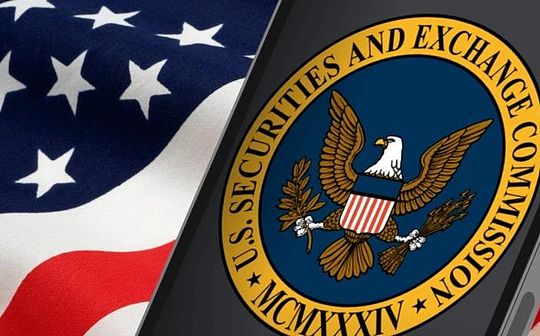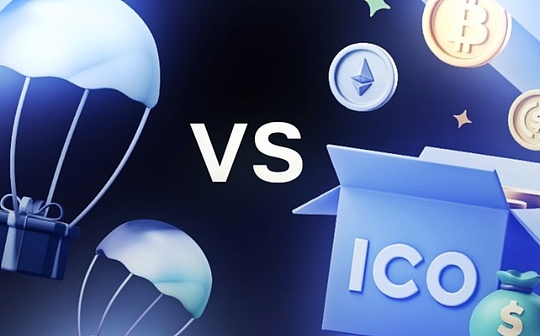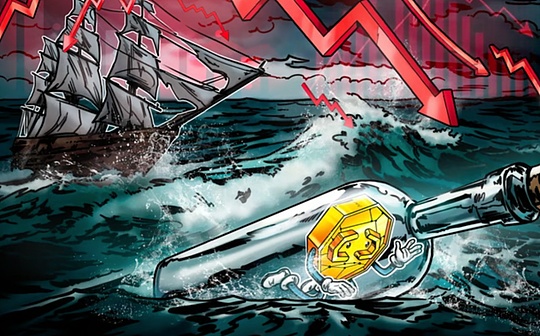
Source: Beosin
With the rapid development of blockchain and cryptocurrencies, the direction of global Web3 regulation is undergoing profound changes.Entering 2025, governments and regulators are gradually adjusting their policies to this emerging field to adapt to market growth and technological innovation needs.This article will explore the main trends in Web3 regulation in 2025 and analyze its profound impact on cryptocurrency markets, technological innovation and investment opportunities, especially how virtual asset service providers (VASPs) are in an increasingly stringent compliance environmentEnsure compliance and meet the challenges of onchain AML.
1. US SEC relaxes cryptocurrency enforcement efforts
The Securities and Exchange Commission (SEC) has been stricter in cryptocurrencies over the past few years, especially in crypto exchanges, ICOs and token issuances.However, with the maturity of the market and the government’s gradual understanding of the potential of blockchain technology, SEC has recently shown a certain trend of policy relaxation.The U.S. Congress has begun to promote the formulation of a clearer and unified Web3 regulatory framework, and this change will bring a more stable regulatory environment to the cryptocurrency industry, thereby promoting technological innovation and market development.
The SEC’s relaxation of regulation may bring more investment opportunities to the cryptocurrency market.Especially in a technology-friendly policy environment, the market for blockchain and crypto assets will usher in a booming opportunity.Cryptocurrencies not only provide new investment channels for traditional financial markets, but may also become an important tool to solve the difficulties of the global financial system.Especially in the fields of cross-border payments, smart contracts and decentralized finance (DeFi), the innovative advantages of blockchain technology are becoming increasingly apparent.
2. Diversification of global cryptocurrency regulatory policies
Although the regulatory policies in the United States tend to be relaxed, there are large differences in the regulatory attitudes towards cryptocurrencies around the world.Different countries have adopted different regulatory strategies based on their own economic conditions, technological development and political environment.
●Hong Kong Region: The Securities and Futures Commission (SFC) has promoted transparency and compliance in the cryptocurrency market by approving the Virtual Asset Service Provider (VASP) license.As of 2024, the Hong Kong Securities and Exchange Commission has legally licensed seven cryptocurrency exchanges, and the issuance of the license has increased transparency across the entire industry and further enhanced market trust.
On December 6, 2024, the Hong Kong government announced the highly anticipatedStablecoin Bill.This legislation provides an exhaustive regulatory framework for issuers of fiat-Referenced Stablecoins (FRS) to build Hong Kong into a global leader in virtual assets.
In addition, all OTC merchants need to apply for a license from the Hong Kong Monetary Authority (HKMA) in order to operate their business legally.The conditions for applying for a license will include the following aspects: Financial Strength: OTC merchants need to prove that they have sufficient capital and financial management capabilities.Risk Management: OTC merchants need to formulate a complete risk management system, including measures in anti-money laundering, anti-terrorist fund raising, and network security.
● South Korea: South Korea has implemented a strict cryptocurrency trading license system and imposed strong anti-money laundering obligations on virtual asset operators.Virtual asset service providers not only have to assume anti-money laundering responsibilities, but also need to conduct user classification and transaction monitoring.These measures show that while South Korea strengthens market supervision, it also provides legal guarantees for the long-term development of the cryptocurrency industry.
●Singapore: As an international financial center for blockchain and cryptocurrencies, Singapore has a relatively loose regulatory framework.The Monetary Authority of Singapore (MAS) has licensed cryptocurrency service providers to ensure that these businesses comply with basic requirements such as anti-money laundering, customer identity identification (KYC) and transaction monitoring.In addition, the Digital Payment Token (DPT) service license issued by MAS also provides clear compliance guidance for related companies.
●Turkey: Turkey is also increasingly strict in supervision of cryptocurrency service providers, requiring transaction service providers to submit user identity information, especially for strict review of transactions exceeding a specific amount.These measures help increase transaction transparency and prevent illegal capital flows.
The different regulatory policies of these countries show a trend: governments around the world are adjusting the regulatory framework of cryptocurrencies according to their own national conditions.Overall, more and more countries are beginning to recognize the potential of cryptocurrencies and try to promote their healthy development through reasonable regulatory policies.
3. Support innovative government policies to promote blockchain expansion
Some countries, especially those technology-friendly governments, are actively promoting innovation in blockchain technology.For example, Natalie Laidman, a partner at Sullivan Worcester Law Firm, pointed out that Donald Trump publicly expressed his support for the cryptocurrency market and opposed excessive regulation during his tenure as president.This policy support creates a favorable environment for the expansion of blockchain technology and investment in venture capital.
Governments play a vital role in supporting innovation.Take the United States as an example. As policies gradually relax, more and more blockchain startups will be able to obtain financing and further promote technological innovation.Blockchain technology itself will also be a key tool to solve security and privacy issues such as generative artificial intelligence (AI).The decentralization and immutability of blockchain can provide guarantees for the transparency and traceability of AI data, thereby enhancing the trust of all sectors of society in AI technology.
4. VASP regulation: Globally strengthen transparency and compliance
With the strengthening of supervision of VASP (virtual asset service providers), more and more countries have begun to establish clear licensing systems.By establishing a VASP license, regulators can ensure that cryptocurrency platforms comply with compliance and enhance market transparency.This not only helps combat illegal activities such as money laundering and terrorist financing, but also helps to enhance investors’ confidence.
For example, Hong Kong, South Korea and Singapore have begun to require cryptocurrency trading platforms to provide relevant legal documents and operational reports to ensure that the operations of these platforms comply with local laws.These regulatory measures will further enhance the legitimacy and transparency of the global crypto market and lay the foundation for the long-term and healthy development of the blockchain industry.
5. Safety Compliance Company Helps VASP Compliance
With the rapid development of Web3 and cryptocurrency markets, how to comply with increasingly stringent global regulatory requirements has become one of the key challenges for virtual asset service providers (VASPs).Especially in the fields of anti-money laundering (AML), customer identity identification (KYC), and transaction monitoring, virtual asset service providers must implement strict compliance measures to avoid legal and regulatory risks.
6. Future challenges and opportunities for Web3 regulation
Although the global Web3 regulatory policy is gradually becoming clear, it still faces many challenges.First, the lack of uniformity in the formulation of regulatory frameworks among countries may lead to compliance issues in cross-border transactions.Secondly, the decentralized nature of blockchain technology itself makes it difficult for regulators to intervene directly, which also increases the complexity of regulation.Finally, the high innovation and rapid change of the cryptocurrency market also lead to continuous adjustment and improvement of regulatory policies.
However, Web3 regulation also brings huge opportunities.First, the advancement of compliance will attract more institutional investors to enter the cryptocurrency market.Secondly, a global regulatory framework will promote cross-border cooperation between different regions and countries and promote the application of blockchain technology on a global scale.Finally, government regulatory policies on Web3 will provide new impetus for innovation in blockchain technology and cryptocurrency markets.
7. Conclusion: Supervision and innovation are parallel, and the future of Web3 is promising
In 2025, the global Web3 regulatory trend is developing in a clearer and more comprehensive direction.The relaxed regulatory measures in the United States, compliance requirements in European and Asian countries, and the global pursuit of transparency in cryptocurrency markets all indicate that the Web3 industry is heading for a more mature stage.In this process, technological innovation and compliance supervision will be promoted in parallel to jointly shape the future of cryptocurrencies and blockchain.
With the gradual improvement of global regulatory policies, Web3 technology will be applied in more fields, and blockchain will become an important tool to solve global financial, social, privacy and other problems.The healthy development of the cryptocurrency market cannot be separated from the reasonable supervision of governments in various countries. In the future, Web3 will be a new era that combines technological innovation and policy compliance.








